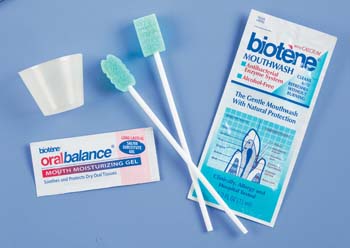Pulsating Toothache
Published: Aug 3, 2010
Symptoms, Causes and Treatment
 A toothache can be a very painful experience; this pain is caused when the root nerve of a tooth is irritated. The most common causes of a toothache are infection, decay, injury or if a tooth is pulled out. The pain radiates to the jaw and sometimes causes ear pain as well. In the past, heart problems have been linked to dental pain as well, although this is not normal.
A toothache can be a very painful experience; this pain is caused when the root nerve of a tooth is irritated. The most common causes of a toothache are infection, decay, injury or if a tooth is pulled out. The pain radiates to the jaw and sometimes causes ear pain as well. In the past, heart problems have been linked to dental pain as well, although this is not normal.
Dental pain occurs from the inflammation of the center part of the tooth which is known as the pulp. This area contains very sensitive nerves; inflammation to the pulp can be caused by cavities, injury, infection or trauma.
Below are some symptoms of a toothache:
- Hot or cold sensitivity.
- Pain when chewing.
- Bleeding from tooth or gums.
- Swelling around the tooth.
- Swelling of the jaw.
- Injury to the area.
At times an infected tooth may appear normal but if you tap it, the pain becomes more intense. This is a sign of dental decay or gum disease.
Dental pain can sometimes be cured by oral pain relief medicines which are available over the counter but medical attention is required if an individual experiences any of the symptoms mentioned below:
- Pain on the 2nd or 3rd day of tooth extraction.
- Swelling of the gums or face.
- Broken or knocked out teeth due to an injury.
- Fever due to a toothache.
- Experience pain in your tooth every time you open your mouth widely.
- When wisdom teeth are coming out.
- Bleeding from gums.
- Excessive pain.
- Trouble swallowing.
A minor toothache can be treated at home with over the counter drugs such as Acetaminophen (Tylenol, Tylenol PM) but they should be taken as recommended on the package. Individuals with a toothache should avoid very hot or cold foods because they will make the pain more intense. Biting on a cotton ball soaked in oil of cloves is another home remedy for a toothache.
In most cases the first visit to the dentist will usually result in the prescription of pain relievers and antibiotics. In follow up visits to the dentist’s office; fillings or other procedures may be performed as required. If it is a baby tooth, then the dentist will more than likely extract that tooth. If the problem is severe on a permanent tooth, then a root canal will be performed where root of the tooth is sealed and a crown is placed on top of the tooth.
Most people can avoid severe dental problems by keeping good Oral Care habits. We should all watch what we eat and be careful of food that sticks to and between our teeth. Another way to prevent tooth decay is to have a dentist clean your teeth at least twice a year.


 A toothache can be a very painful experience; this pain is caused when the root nerve of a tooth is irritated. The most common causes of a toothache are infection, decay, injury or if a tooth is pulled out. The pain radiates to the jaw and sometimes causes ear pain as well. In the past, heart problems have been linked to dental pain as well, although this is not normal.
A toothache can be a very painful experience; this pain is caused when the root nerve of a tooth is irritated. The most common causes of a toothache are infection, decay, injury or if a tooth is pulled out. The pain radiates to the jaw and sometimes causes ear pain as well. In the past, heart problems have been linked to dental pain as well, although this is not normal.








